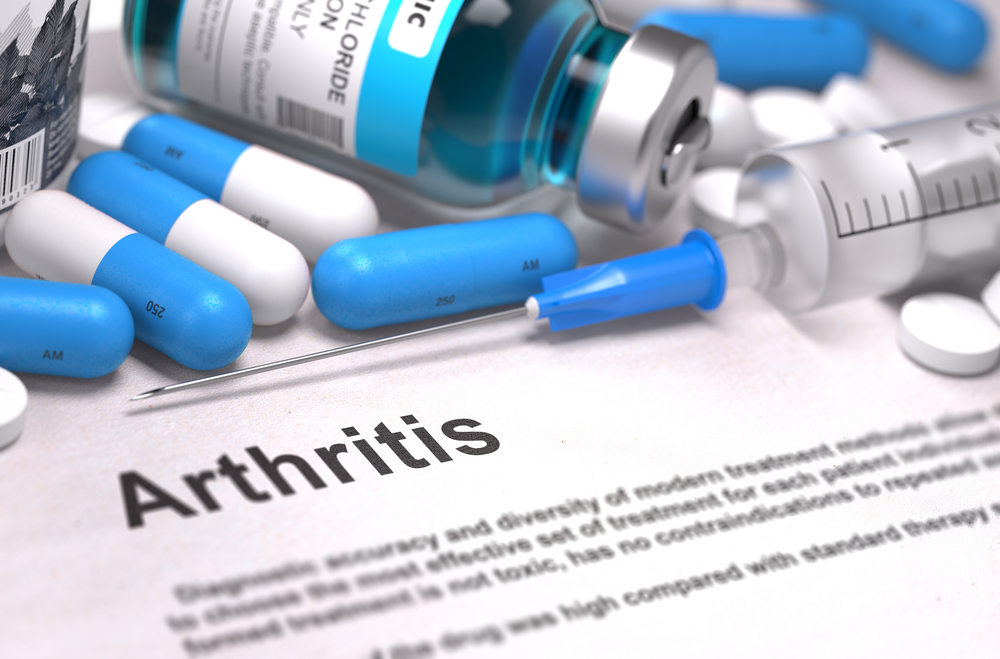Improving When & How Rheumatoid Arthritis is Diagnosed
Nearly 20 million people worldwide live with rheumatoid arthritis (RA), making it one of the most common types of autoimmune disease. RA causes inflammation and degeneration of the joints, leading to bent or twisted joints. It typically affects wrists and fingers but can damage other joints and cause various health problems.
A specific cause is unknown, though studies lead researchers to believe it occurs in people with a higher risk for RA, including family history, who are exposed to environmental triggers, such as smoking and stress. Diagnosing and treating RA early can improve a patient’s function and their quality and length of life.
RA-related Testing Today
- Rheumatoid factor (RF)
RF is used to diagnose autoimmune disorders and estimate severity when patients have RA, Sjogren’s syndrome, or other autoimmune diseases. Higher levels of RF likely indicate a more severe case of RA. RFs are believed to result from the body’s response to bacteria, viruses, or other triggers.
- C-Reactive Protein (CRP)
A protein produced by the liver, CRP is a positive acute phase reactant that indicates inflammation and its severity but not the cause or location.
- Erythrocyte Sedimentation Rate (ESR)
ESR tests assess inflammation. It is usually used with other tests to diagnose a specific condition since many can cause abnormal ESR. This testing can monitor inflammatory conditions and treatments.
- Antinuclear Antibodies (ANA)
ANAs cause disease by attacking healthy cells and tissues. ANA testing can be used to diagnose autoimmune disorders, but not on its own. Symptoms, physical exams, and other tests are needed.
- Complete Blood Count (CBC)
People with RA are often anemic because RA medications can harm bone marrow or cause leukopenia or thrombocytopenia.
- Hepatitis
Some RA medications and biologics are toxic to the liver or may re-activate a dormant hepatitis virus. Evidence of hepatitis B or C is usually checked before prescribing medication and during treatment. - Tuberculosis (TB)
Clinicians will check for TB before they start a patient on a biologic since these medications can increase the potential for activating an infection. - Liver Panel
Monitoring specific proteins and liver enzymes helps determine whether medications have damaged the liver or re-activated hepatitis. - Lipid Panel
RA treatment with interleukin and JAK inhibitors can impact triglyceride and cholesterol levels, and RA inflammation can decrease lipid serum levels. - Kidney Function
Anti-inflammatory drugs can alter kidney function. When kidney function is abnormal, other RA medications can cause toxicity.
 Diagnosing RA Earlier
Diagnosing RA Earlier
As with many diseases and conditions, diagnosing and treating RA early can change the disease’s course. To make that early diagnosis, we need improved serological markers of RA. Anti-cyclic-citrullinated-peptide (anti-CCP) antibodies look to be the answer.
In conjunction with other diagnostic methods, anti-CCP antibody testing allows clinicians to intervene before the disease has caused irreversible damage. Anti-CCP can be found years before RA is present and make it possible to identify those who can expect to develop the disease.
It can be challenging to distinguish between RA and other inflammatory arthritis and inflammatory conditions in the early stages. Yet, anti-CCP antibodies have been shown to help identify patients likely to have significant RA disease activity.
Anti-CCP Establishes Specificity & Predictive Value
Two generations of assays using cyclic citrullinated peptide (CCP) to detect anti-CCP antibodies are commercially available (anti-CCP1 and anti-CCP2). Both have been studied extensively, and findings include:
- Sensitivity using the anti-CCP1 assay ranged from 44% to 56%, and specificity was 90% to 97% 1-3
- Detection of anti-CCP antibodies with anti-CCP2 assays showed sensitivity of 64–89% and specificity of 88–99% 4-7
Studies of RA patients who’d had symptoms for less than six months found:
- Sensitivity ranging from 39% to 50%, and specificity from 93% to 98%. 8-13
- A combination of rheumatoid factor and anti-CCP antibodies predicted RA with a sensitivity of 30% to 39% and a specificity of 98% to 100%.
Detection rates have proven consistent across ethnically and geographically diverse groups. The same was true when using different control groups and data collection and analysis methods. 14
The predictive value of anti-CCP antibodies was the focus of several studies that used blood bank samples present before an RA diagnosis.
One study found:
- 7% of the RA patients vs. 1.8% of the controls were positive for anti-CCP antibodies 15
- 3% were positive for RF vs. 6% of controls
- Time from blood sampling to diagnosis = median of 2.5 years and a maximum of 9 years
The results of another study noted:
- 40% of RA patients vs. 0.6% of controls tested positive for anti-CCP antibodies 16
- 8% were positive for RF vs. 1.1% of controls
- Time from blood sampling to diagnosis = median of 4.8 years and a maximum of 14 years
“Anti-CCP antibodies are a highly specific marker for RA in several diverse patient groups. This specificity extends to patients with early disease, in whom a timely diagnosis is most needed. The low sensitivity of the test (40–50% in most published cohorts) indicates that a negative anti-CCP antibody test does not exclude disease, but its high specificity means that a positive result markedly increases the probability that the patient will have RA.”
--Anti-CCP Antibody Testing as a Diagnostic and Prognostic Tool in Rheumatoid Arthritis--
Need Quality Assurance Material for RA-related Biomarkers?
Our VALIDATE® products help perform calibration verification and linearity, while challenging the full reportable range of your instrument. They assist with troubleshooting instrument systems, reagent problems, and calibration anomalies. Meanwhile, our Multichem® quality control products deliver superior consolidation of 3rd party controls and help in reducing errors and improving turnaround time through reduced QC handling.
Several of these ready-to-use products support RA-related testing, particularly VALIDATE SP2 (602re) for serum proteins RF and CRP. Multiple product configurations are available and formulated to maximize reportable ranges with minimum dilutions.
VALIDATE® Products for RA-related Biomarkers
- aHBs:
- Anti-Hepatitis B surface antigen
- GC1:
- BUN (Blood Urea Nitrogen)
- CREA (Creatinine)
- CHOL (Cholesterol)
- TRIG (Triglycerides)
- GC3:
- ALP (Alkaline Phosphatase)
- ALT (Alanine Aminotransferase)
- AST (Aspartate Aminotransferase)
- GGT (Gamma-Glutamyltransferase)
- LP:
- HDL (High-density Lipoprotein)
- LDL (Low-density Lipoprotein)
- SP2:
- CRP (C-Reactive Protein)
- RF (Rheumatoid Factor)
ACCURUN®/Multichem® QC products for RA-related Biomarkers
- Multichem S Plus:
- ALP (Alkaline Phosphatase)
- ALT (Alanine Aminotransferase)
- AST (Aspartate Aminotransferase)
- BUN (Blood Urea Nitrogen)
- CHOL (Cholesterol)
- CREA (Creatinine)
- CRP (C-Reactive Protein)
- GGT (Gamma-Glutamyltransferase)
- HDL (High-density Lipoprotein)
- LDL (Low-density Lipoprotein)
- RF (Rheumatoid Factor)
- TRIG (Triglycerides)
- Multichem P
- CRP (C-Reactive Protein)
- RF (Rheumatoid Factor)
- Multichem ID-B / SeroNeg
- Anti-HCV IgG
- Anti-HBc IgG
- HBsAg
- ACCURUN 2 / 21 / 810 Negative
- Anti-HCV
- Anti-HBc
- HBsAg
- ACCURUN 51 / 810 Negative
- HBeAg
- Anti-HBc IgM
- ACCURUN 52 / 810 Negative
- Anti-HBe
- Anti-HBs
Want to discuss which VALIDATE® products are best for your instrument system? Contact an Account Manager at 800.377.9684, or email us.
Watch for more LGC Clinical Diagnostics information about Anti-CCP coming THIS month.
References
- Bizzaro N, et al. Diagnostic accuracy of the anti-citrulline antibody assay for rheumatoid arthritis, Clin Chem, 2001, vol. 47 (pg. 1089-93)
- Bas S, et al. Anti-cyclic citrullinated peptide antibodies, IgM and IgA rheumatoid factors in the diagnosis and prognosis of rheumatoid arthritis, Rheumatology (Oxford), 2003, vol. 42 (pg. 67780)
- Zeng X, et al. Diagnostic value of anti-cyclic citrullinated Peptide antibody in patients with rheumatoid arthritis, J Rheumatol, 2003, vol. 30 (pg. 1451-5)
- Lee DM, Schur PH. Clinical utility of the anti-CCP assay in patients with rheumatic diseases, Ann Rheum Dis, 2003, vol. 62 (pg. 870-4)
- Suzuki K, et al. High diagnostic performance of ELISA detection of antibodies to citrullinated antigens in rheumatoid arthritis, Scand J Rheumatol, 2003, vol. 32 (pg. 197-204)
- Vallbracht I, et al. Diagnostic and clinical value of anti-cyclic citrullinated peptide antibodies compared with rheumatoid factor isotypes in rheumatoid arthritis, Ann Rheum Dis, 2004, vol. 63 (pg. 1079-84)
- De Rycke L, et al. Rheumatoid factor and anticitrullinated protein antibodies in rheumatoid arthritis: diagnostic value, associations with radiological progression rate, and extra-articular manifestations, Ann Rheum Dis, 2004, vol. 63 (pg. 1587-93)
- Schellekens GA, et al. The diagnostic properties of rheumatoid arthritis antibodies recognizing a cyclic citrullinated peptide, Arthritis Rheum, 2000, vol. 43 (pg. 155-63)
- Jansen AL, et al. Rheumatoid factor and antibodies to cyclic citrullinated peptide differentiate rheumatoid arthritis from undifferentiated polyarthritis in patients with early arthritis, J Rheumatol, 2002, vol. 29 (pg. 2074-6)
- Saraux A, et al. Value of antibodies to citrulline-containing peptides for diagnosing early rheumatoid arthritis, J Rheumatol, 2003, vol. 30 (pg. 2535-9)
- van Gaalen FA, et al. Autoantibodies to cyclic citrullinated peptides predict progression to rheumatoid arthritis in patients with undifferentiated arthritis: a prospective cohort study, Arthritis Rheum, 2004, vol. 50 (pg. 709-15)
- Vittecoq O, et al. Autoantibodies recognizing citrullinated rat filaggrin in an ELISA using citrullinated and non-citrullinated recombinant proteins as antigens are highly diagnostic for rheumatoid arthritis, Clin Exp Immunol, 2004, vol. 135 (pg. 173-80)
- Soderlin MK, et al. Antibodies against cyclic citrullinated peptide (CCP) and levels of cartilage oligomeric matrix protein (COMP) in very early arthritis: relation to diagnosis and disease activity, Scand J Rheumatol, 2004, vol. 33 (pg. 185-8)
- Niewold, TB, et al. Anti-CCP antibody testing as a diagnostic and prognostic tool in rheumatoid arthritis, QJM: An International Journal of Medicine, Volume 100, Issue 4, April 2007, Pages 193–201
- Rantapaa-Dahlqvist S, et al. Antibodies against cyclic citrullinated peptide and IgA rheumatoid factor predict the development of rheumatoid arthritis, Arthritis Rheum, 2003, vol. 48 (pg. 2741-9)
- Nielen MM, et al. Specific autoantibodies precede the symptoms of rheumatoid arthritis: a study of serial measurements in blood donors, Arthritis Rheum, 2004, vol. 50 (pg. 380-6)


